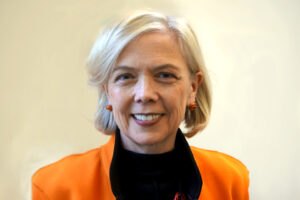
Reaching 97% of the population every week, the BBC is one of Britain’s most well-loved institutions. So those of us working on the current review of the BBC’s Charter expected the public consultation on “Aunty’s” future to be the cause of some debate. But we did not anticipate 192,000 people sending us their views - whether that be on the level of the licence fee, Jeremy Clarkson or the latest version of the BBC sport website!
The scale of response was unprecedented. They addressed 19 separate questions, meaning potentially 3.5 million opinions to read and analyse! What was different in this mass consultation to previous ones, was that there were very few identikit responses. Whilst some social campaigning organisations very successfully drummed up support and interest in our consultation, the responses weren’t a series of copy and paste emails, but individually written.
It is obviously fantastic that the public are so interested in the BBC, and were so actively engaged with the consultation process. But being brutally honest, on the morning of 9 October, as the consultation inbox closed, the prospect of reading all of those responses was pretty overwhelming, and the reality since has been challenging.
What have we learned?
15 weeks on, and with our Blue Peter style totalometer of responses read nearing the 190,000 mark, we have a huge sense of achievement of a job very well done. And we thought we’d take the opportunity to reflect on what went well, what not so well, and what we have learnt that can inform large scale public consultations in the future.
But you’ll have to wait a few weeks yet for the full analysis of what the great British public actually said - and yes Strictly, the Today programme and BBC Radio Derbyshire all feature.
So, what are our top tips for consultation success?
Adapt
With a week to go we were looking at 60,000 responses to read. 7 days later it was three times that amount. Adapting our plans to that increased volume, and quickly, was vitally important. Being able to find more staff, more office space, more computers was key; but we also had to adapt our processes and approach to reading and coding the responses throughout the project.
Act quickly
Decisions needed to be taken quickly. We instituted the Department’s rapid reaction policy, designed precisely to deal with the unexpected. We established a bespoke governance structure for the task with senior decision makers at the table. That meant decisions could be taken and acted on quickly.
Data is king
It really is. After a bumpy start we settled on a fantastic suite of management information that allowed the operational managers to manage the work on a day to day basis; gave senior management the information they needed to take informed strategic decisions; and provided our stakeholders with the confidence that we knew what we were doing and that we could get the job done.
Making best use of others
DCMS is a small Department of 500 civil servants. Whilst we diverted significant resources to the task, we simply could not spare 40 people for 3 months from their day job. So we asked the rest of Whitehall for help. HMRC flew some of their operational colleagues down from Scotland who brought with them experience of working within a delivery and target focused environment. It wasn’t just coders either, the FCO provided us with some brilliant managerial support to run the operation.
Celebrate success
The corollary of all the help we received from colleagues in DCMS, and across Whitehall is that we said thank you. Milestones were celebrated. Feedback was sent to the HR Departments of those seconded from across Whitehall. And the ‘End of Project Party’ provided the team a chance to thank those who had done particularly well with best coder and best supporting coder awards.
Whilst the job was a huge challenge, and undoubtedly at times mundane, frustrating and highly pressured in equal measure, it was also, overwhelmingly one which people enjoyed. All of those who joined the team talked about the great team spirit and the sense of achievement. One of our coders summed it up nicely: “I decided to get involved as I saw the opportunity as a chance to develop myself and learn about the practical side of performance management which I did, but what I enjoyed most was the atmosphere at DCMS and some of the interesting survey responses!”
*Inform, Educate and Entertain is the BBC’s mission
Never miss a post - click here to subscribe to the blog and stay in the loop.
